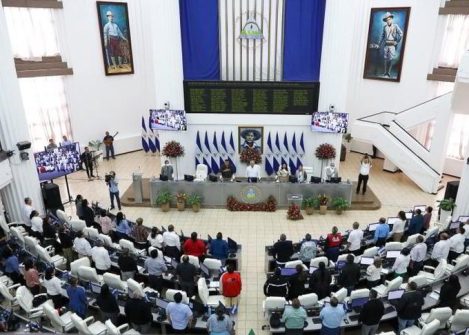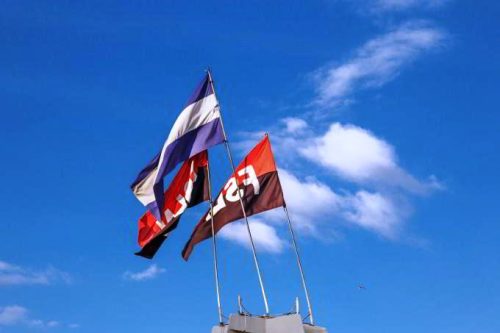Towards a “family dictatorship”.

Change of the constitution. The introduction of a co-presidency. Total control over legislative and judicial power. Establishing a voluntary police force as an auxiliary and support to the National Police. Towards a “family dictatorship”.
On January 30, 2025, the National Assembly of Nicaragua approved a constitutional reform that significantly strengthened the power of President Daniel Ortega and his wife, Vice President Rosario Murillo.
The changes introduced completely transformed the country’s political system, strengthening the influence of the executive over other state bodies. This constitutional change institutionalises a true “family dictatorship”.The heart of the reform lies in the modification of Article 132 of the Constitutional Charter which, as reformed, attributes to the President of the Republic the coordination of the legislative, judicial, and electoral branches, as well as the control of the regions and municipalities. In addition, by virtue of the same provision, the Presidency of the Republic is placed at the head not only of the Nicaraguan Army but also of the Ministry of the Interior
and the National Police.

View of the FSLN-dominated National Assembly plenary. Photo: Office of Asamblea Nacional
The second novelty introduced by the reform is the introduction of a co-presidency. In fact, the reformed article 133 provides that the Presidency of the Republic will be made up of two Co-Presidents, both holding equal parts of presidential power, elected by an absolute majority through universal, free and direct suffrage.
At the same time, article 135 extends the presidential mandate from 5 to 6 years, moving the next elections from 2026 to 2027.
Article 136 establishes that the Presidency of the Republic is the only body authorised to propose candidates for the Supreme Court of Justice, to appoint vice-presidents and to veto all or part of bills.
To further centralise the powers in the hands of the Executive, the new text of Article 137 has also given the two co-presidents the power not only to appoint any number of vice-presidents without them being chosen by popular vote but also the power to appoint and dismiss ministers and vice-ministers, the Attorney General and Deputy Attorney General of the Republic, the directors of autonomous and government entities, the heads of diplomatic missions and the heads of special missions.The reform of Article 97, on the other hand, establishes an “auxiliary body” of Nicaraguan citizens charged with supporting the National Police on a voluntary basis.
This new body, called the “Volunteer Police”, closely resembles the paramilitary formations that repressed anti-government protests in 2018, resulting in over 600 deaths and thousands of injuries.

The new reform elevated the flag of the Sandinista National Liberation Front – FSLN (red and black) to the official symbol of the nation, equating it with the white and blue flag. Shutterstock/Riderfoot
Another novelty is the reform of Article 13, which elevates the flag of the Sandinista National Liberation Front – FSLN (red and black) to the official symbol of the Nation, equating it to the white and blue flag and the national anthem of Nicaragua. This choice constitutes a symbolic operation of strong impact, since it inserts the emblem of the party in power directly into the institutional sphere, cancelling any distinction between the identity of the Republic and the political identity of the FSLN. The decision to include the flag of the FSLN among the official symbols of the Country represents a further step towards the fusion between Government and party, reducing the space for political pluralism and recognition of the other forces present in Nicaragua.

OAS Main Building. The General Secretariat of the Organization of American States has condemned the constitutional reforms. The “reform” is illegitimate in form and content. Photo: Juan Manuel Herrera/OAS
The United Nations High Commissioner for Human Rights (UNHCR), already in the preliminary approval phase of the text in November 2024, had stated that the approved constitutional reform “violates the international obligations undertaken by Nicaragua” and therefore urged the State to review it to guarantee the separation of powers, political pluralism and fundamental freedoms, in line with the international commitments undertaken by the country.
The general secretariat of the Organization of American States condemned the constitutional reforms. The “reform” is illegitimate in form and content, it simply constitutes an aberrant form of institutionalisation of the matrimonial dictatorship in the Central American country and represents a definitive attack on the democratic rule of law”, it declared in a statement. (Illustration: PxMolinA)
N.A.R.



